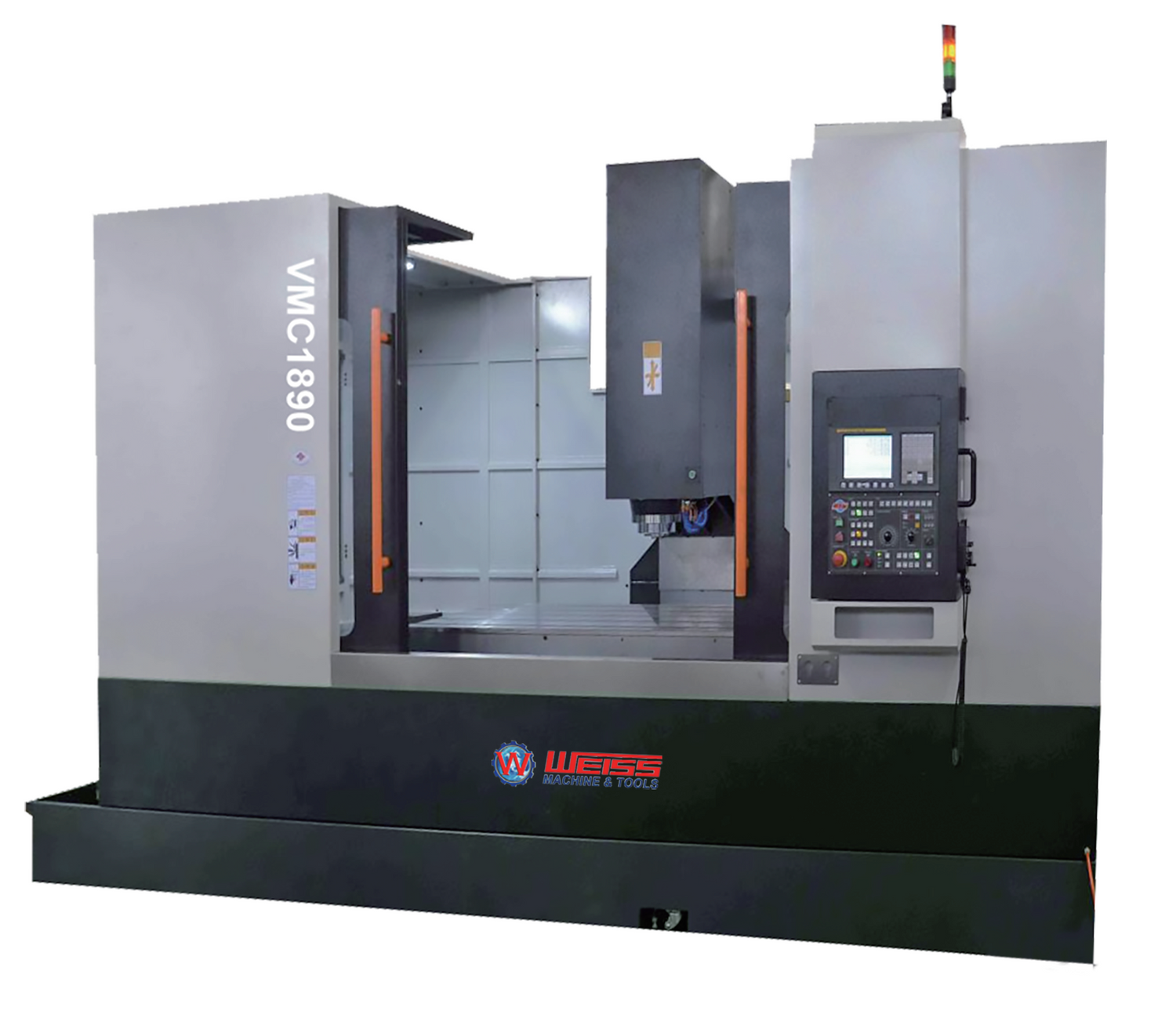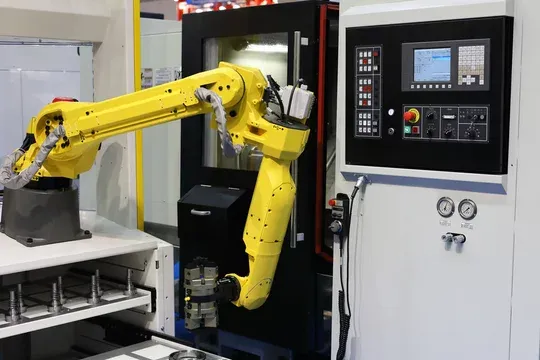
Get A Quote
How CNC Machining Centers are Shaping Industry Innovations?
In today’s fast-evolving manufacturing landscape, CNC machining centers play a pivotal role in driving industry innovations. With their unparalleled precision and ability to execute complex tasks, these machines have revolutionized industries ranging from aerospace to medical devices. The impact of CNC machines on global manufacturing is monumental, providing faster production times, reduced human error, and enhanced design flexibility. But how exactly are CNC machining centers shaping industry innovations, and what does this mean for the future of manufacturing? In this blog, we will explore the profound influence of CNC machines and why they are a cornerstone of modern industrial advancements.
The Evolution of CNC Machining Centers
CNC (Computer Numerical Control) machines were developed in the mid-20th century as a solution to the limitations of manual machining. Traditional machine tools, though effective, required significant manual input and lacked precision for complex designs. The introduction of CNC machining centers allowed manufacturers to automate processes, increase efficiency, and produce complex parts with high accuracy.
In the years since their inception, CNC machining centers have become more advanced, incorporating technologies like 3D modeling, real-time monitoring, and artificial intelligence. These innovations enable manufacturers to create intricate components and push the boundaries of design and functionality. Shaping industry innovations, CNC machining centers continue to redefine the standards of modern manufacturing.
Key Functions of CNC Machining Centers
To fully understand the impact of CNC machines, it's essential to look at the key functions they perform. Modern CNC machining centers are multi-functional, executing various tasks that range from basic milling to intricate contouring. Below are the primary functions that make these machines indispensable in today’s industrial landscape:
1. Milling
Milling is one of the most common operations performed by CNC machining centers. It involves the use of rotating cutters to remove material from a workpiece, shaping it into the desired form. This function is crucial in industries such as automotive and aerospace, where high precision is a necessity.
2. Turning
In addition to milling, CNC machines are used for turning, a process where the workpiece is rotated while a cutting tool shapes it. Turning is widely used for producing cylindrical parts, such as shafts and bushings, and is a staple in industries like energy and heavy machinery.
3. Drilling and Tapping
CNC machines are also proficient in drilling and tapping operations. Drilling creates holes, while tapping forms internal threads. These functions are particularly important in industries that require high-volume production of parts with multiple holes and threads, such as electronics and automotive.
4. Multi-Axis Machining
One of the standout features of CNC machining centers is their ability to perform multi-axis machining. Traditional machines operate on three axes (X, Y, Z), but advanced CNC machines can operate on five or more axes, allowing for the production of more complex and intricate designs. This capability is essential for creating components like turbine blades or medical implants, which require high precision and complex geometries.
The Impact of CNC Machines on Industry
The impact of CNC machines on various industries is far-reaching. Their versatility, precision, and efficiency have led to a number of significant benefits, including improved production rates, cost savings, and the ability to produce highly complex parts. Below, we examine the influence of CNC machines in shaping industry innovations across different sectors.
1. Aerospace and Defense
In aerospace and defense, the need for precision is paramount. CNC machining centers have revolutionized the production of aircraft components, allowing manufacturers to achieve tolerances within microns. Parts like turbine blades, landing gear components, and structural elements must meet strict quality standards to ensure the safety and performance of aircraft. CNC machines ensure that these critical parts are produced with the highest levels of precision and repeatability.
2. Medical Industry
The impact of CNC machines in the medical industry is equally significant. With the demand for custom-made medical devices and implants increasing, CNC machining centers provide a solution that allows for rapid prototyping and mass production of intricate designs. Surgeons rely on precision-engineered instruments, and patients benefit from implants that are tailored to their exact specifications. CNC technology plays a crucial role in producing these life-saving devices with unparalleled accuracy.
3. Automotive Industry
The automotive industry benefits from the speed and versatility of CNC machining centers. Whether it's producing engine components, transmission parts, or custom-designed wheels, CNC machines streamline the manufacturing process and enable mass production. By reducing production times and minimizing material waste, CNC technology contributes to both cost efficiency and sustainability in automotive manufacturing.
4. Electronics
CNC machining centers are also making an impact in the electronics industry, where they are used to produce intricate components for consumer electronics, such as smartphones, laptops, and wearables. Given the tiny tolerances and delicate parts involved, CNC machines are indispensable for ensuring that these devices meet high-performance standards. The ability to manufacture components with precision ensures that the final product functions reliably.
CNC Machining Centers: Shaping Industry Innovations
CNC machining centers are not just impacting industries today—they are also actively shaping industry innovations for the future. The integration of cutting-edge technologies such as automation, artificial intelligence, and machine learning is taking CNC machining to new heights. Let’s explore how these advancements are driving industrial innovation.
1. Automation and Industry 4.0
The rise of Industry 4.0 has ushered in a new era of automation in manufacturing. CNC machining centers are now equipped with sensors and software that allow for real-time data monitoring and automated decision-making. This results in fewer machine downtimes, better tool management, and enhanced overall efficiency. Manufacturers can now leverage predictive maintenance, where CNC machines notify operators of potential issues before they occur, minimizing costly disruptions.
2. 3D Printing and Hybrid Manufacturing
The combination of CNC machining and 3D printing has given rise to hybrid manufacturing solutions. These hybrid systems integrate additive manufacturing with traditional machining to create parts that were once impossible to produce. By fusing these two technologies, manufacturers can produce components with complex internal geometries that would otherwise be unachievable through traditional methods. This is especially beneficial in industries such as aerospace, where weight reduction is a critical factor in component design.
3. Artificial Intelligence and Machine Learning
CNC machines are becoming smarter thanks to the incorporation of artificial intelligence (AI) and machine learning. These technologies allow machines to adapt to new processes, optimize cutting strategies, and even learn from previous operations to improve efficiency. AI-driven CNC machining centers can analyze data from previous runs and adjust their parameters for improved accuracy and speed, leading to more efficient production cycles.
The Future of CNC Machining Centers
The impact of CNC machines will continue to grow as these technologies advance. As manufacturers look for ways to stay competitive in an increasingly globalized market, CNC machining centers will play a crucial role in enabling faster production cycles, improving product quality, and reducing costs.
In the coming years, we can expect to see further innovations such as fully autonomous machining systems, cloud-based CNC control, and enhanced material science that will allow for even greater flexibility in design and production. These advancements will continue to shape industry innovations, offering manufacturers the tools they need to succeed in a rapidly evolving industrial landscape.
Conclusion
CNC machining centers have undoubtedly transformed the manufacturing world, and their impact on industry innovations is only growing. From aerospace to medical, automotive to electronics, CNC machines have enabled industries to achieve higher levels of precision, efficiency, and design complexity. As the technology behind CNC machining continues to advance, so too will its role in shaping the future of global manufacturing.
At WEISS Machinery, we pride ourselves on delivering state-of-the-art CNC machining centers that help our clients stay ahead of the curve. Whether you're looking to streamline your production process or adopt the latest innovations in CNC technology, our solutions are designed to meet your needs. Discover how WEISS Machinery can help you take your business to the next level with our innovative CNC machining centers.


